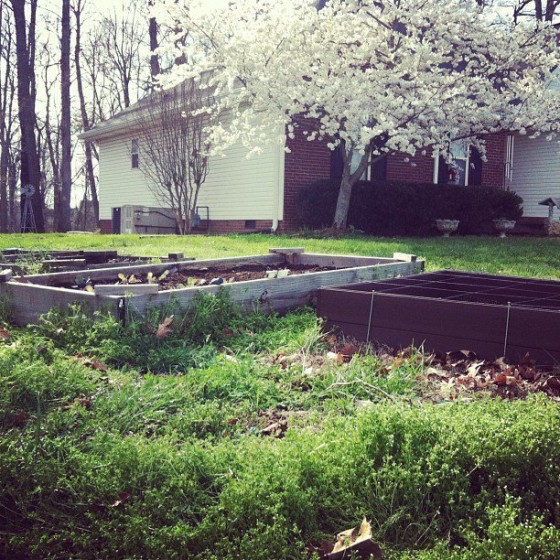I’ve made it no secret that I’m loving me some amateur gardening. My wife and I have tinkered with raised bed gardens now for a few years. We’ve moved the garden, planted different vegetables, started from seeds, started from plants, experimented with fertilizers, sprayed for deer, thrown oranges at deer (and hit them, thank you very much), and had a blast doing it.
But do you know one thing that’s never happened?
We’ve never had a plant that shot its roots towards the sky and its fruit down into the ground.
We’ve never had to say,
Aww shucks (because that’s what gardeners say…), this plant got it wrong…we need to dig it up and turn it over.
Wouldn’t it be weird to see roots growing towards the sky? To have to dig into the ground to get your fresh tomatoes? To wonder, when you planted your squash, whether the plants would guess, correctly or incorrectly, which direction was “up” and which was “down”?
Plants grow the “right” way because God intended them to grow that way. Science may have pinpointed the reason why this happens, but that doesn’t discount the hand of God to sovereignly direct things for His good and our benefit.
The crazy plant
I wonder how often a plant questions its Maker, though.
Wow, how great would it be for me to do things my way? I so hate growing towards the sun. If I could only sink my flowers down deep into this dark soil, things would be much better.
Ridiculous, no? We all know that that won’t work. Roots have to go into the soil. Fruit grows in the sun. (well…unless you’re a potato. But that’s another post for another day) It doesn’t work if this process is reversed. It’s not how plants are supposed to function.
We’re like a crazy plant
We do the same thing, though, in our lives, when we think we know better than God. We ignore the full life that God offers us. We go at life our own way, ignoring the wisdom God offers through others, through Scripture, and through life experiences. We think that we must know better. That our way must be the best. That roots don’t grow deep into the soil. That our roots need a bit of sunshine, and our fruit a bit of darkness.
There is a way that seems right to a man, but its end is the way to death. (Proverbs 14:12)
But life doesn’t always happen as we’d like it to, does it? What we thought would happen by the time we turn 25 hasn’t. We’re not married. Or we don’t have children. Or we’re not in our dream job yet. Or we don’t have a house. Or we don’t have much money. Or we haven’t finished our degree. Or our dad still doesn’t want a relationship with us. By 40, our kids don’t like us. We’re on our 3rd marriage. Still in debt. Still have a dead-end job. Maybe life has left us trashed.
And life itself has stopped making sense.
If God is who He’s claimed He is, our natural inclination would be to accuse, blame, and turn our backs on the One who has created it all.
But let me challenge you with a better way. I think it’s time to trust the Guy who knew us before He crafted us in the womb (Psalm 139:13-16). Who knew what He was doing before we were born.
Even when it doesn’t make sense. Even when things are chaotic. Even when things are falling apart.
The One who created all of this knows what’s best. His perspective is bigger than ours. His ways are higher than ours. (Isaiah 55:8-9) His love is deeper than ours. His joy is more full than ours. And He’s able to bring beauty out of ashes. (Isaiah 61:3)
Choose to scream and rail and throw your hands in the air if you’d like.
Or choose to let your roots sink deeper…and let your fruit grow upwards.






